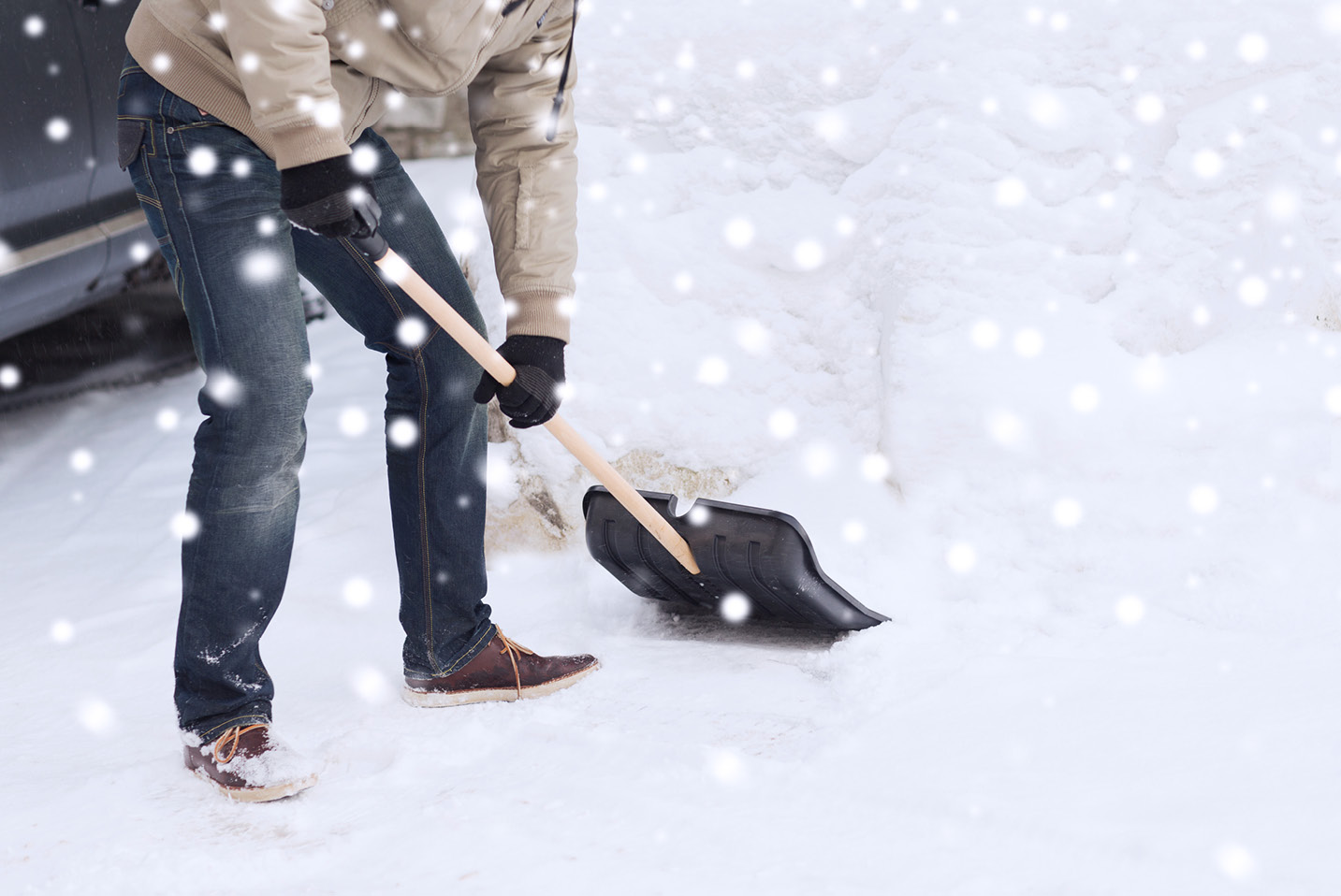
Winter’s coldest months bring us fun, snow, and endless seasonal activities—but with the unpredictable weather and the bitter cold come unexpected injuries. Being informed and prepared is half the battle. Slick, ice-covered sidewalks, driveways, and stairs increase the risk of slip and fall injuries such as sprained ankles; broken wrists, arms, or hips; and even concussions. So how can you reduce your risk of injury?
- Be on the lookout for icy areas
- Wear shoes with solid grip and traction
- Take smaller steps – this makes it harder to lose your balance and easier to correct and regain your balance if you do slip
Another winter injury risk is snow shoveling. Emergency rooms see an average of 11,500 shoveling-related visits annually, so it’s important to make sure you’re being safe. Snow shoveling increases your risk of back injuries, shoulder injuries, and even cardiac events. The mix of cold temperatures and physical exertion makes the heart work harder, which may increase the risk of a heart attack for some. If you do not exercise on a regular basis, are middle-aged or older, or have any health conditions such as heart disease or high blood pressure, you should check with your doctor before doing any strenuous shoveling.
The following tips can help keep you safe when you set out to shovel:
- Warm up. Before heading out to shovel, warm up your muscles with some light movements such as hamstring stretches, calf stretches, arm circles, and walking.
- Push rather than lift. Reduce muscle strain by pushing the snow with the shovel, rather than lifting.
- Use proper body mechanics. When lifting snow, bend from your knees and hinge at your hips instead of bending and initiating from your back.
- Choose your shovel wisely. Ergonomically-designed shovels can help reduce the amount of bending you have to do.
- Lighten your load. Don’t be a hero. Overloading the shovel can significantly increase the load placed on your lumbar spine. Instead, move smaller amounts, even if it means more time shoveling. Your body will thank you later.
- Hit the pause button. Pace yourself and be sure to take frequent breaks. Consider taking a break after 20 to 30 minutes of shoveling, especially when the snow is wet.
- Keep up with snowfall. Try to shovel shortly after the snow falls, when it is lighter and fluffier. The longer snow stays on the ground, the wetter it can become. Wet snow is heavier and harder to move.
- Stay hydrated. Drinking plenty of water while shoveling can help prevent muscle strains.
You can also help prevent winter-related injuries by proactively seeing a physical therapist. By improving your balance and mobility, we can help reduce your risk of falls and improve your body mechanics. Physical therapy can also strengthen the muscles needed to maintain healthy positions and reduce the strain placed on the joints and muscles while shoveling. If you are already dealing with an injury, PT can expedite the healing process by using various techniques to improve circulation, as well as retraining and strengthening the injured areas. The physical therapist will also diagnose any biomechanical factors that might have contributed to the injury so as to reduce the risk of re-injury.
At Excel Physical Therapy, you’ll find an experienced, professional, and friendly staff. Our physical therapists work with clients of all ages and activity levels. Our goal is to get you moving better and feeling healthier so you can get back to doing what you want without pain or fear. Call today!
—
The medical information contained herein is provided as an information resource only, and does not substitute professional medical advice or consultation with healthcare professionals. This information is not intended to be patient education, does not create any patient-provider relationship, and should not be used as a substitute for professional diagnosis, treatment or medical advice. Please consult with your healthcare provider before making any healthcare decisions or for guidance about a specific medical condition. If you think you have a medical emergency, call your doctor or 911 immediately. IvyRehab Network, Inc. disclaims any and all responsibility, and shall have no liability, for any damages, loss, injury or liability whatsoever suffered as a result of your reliance on the information contained herein.
